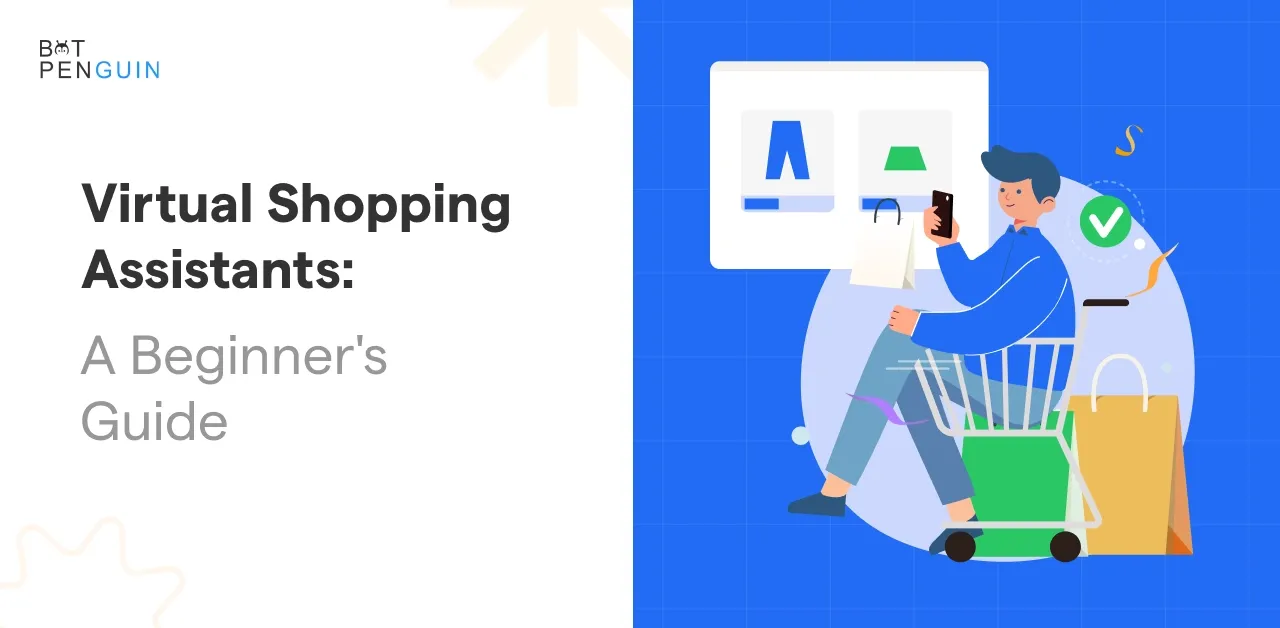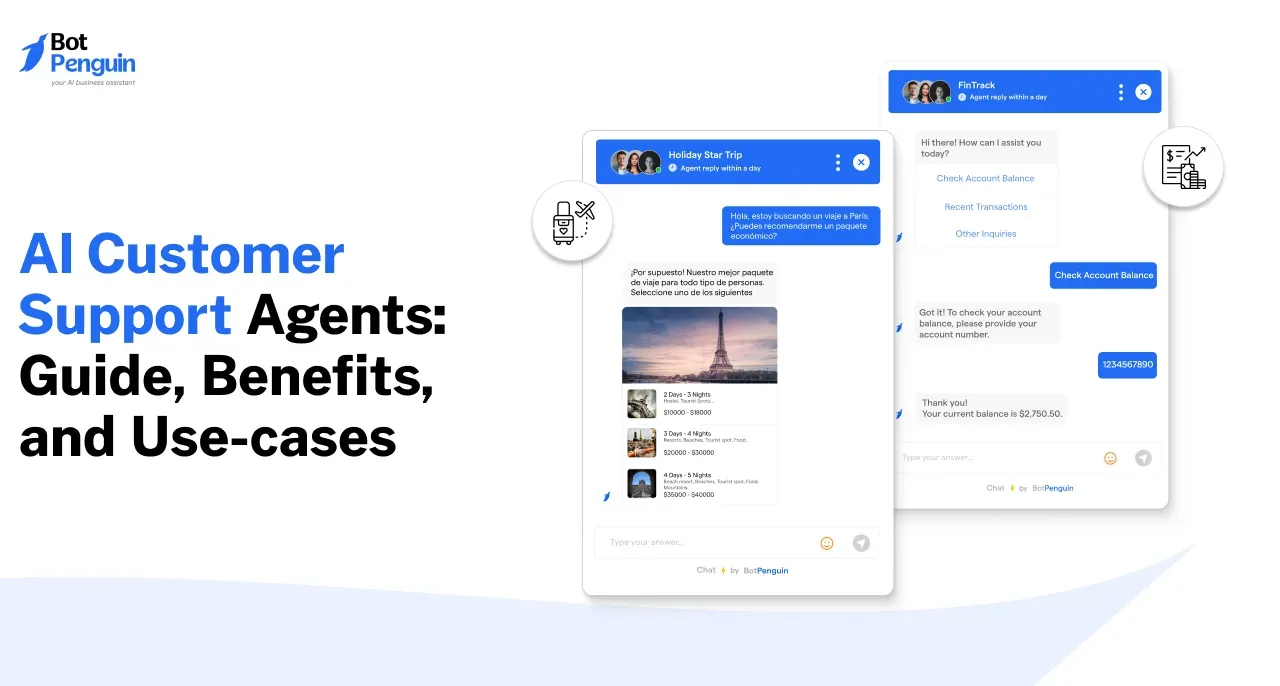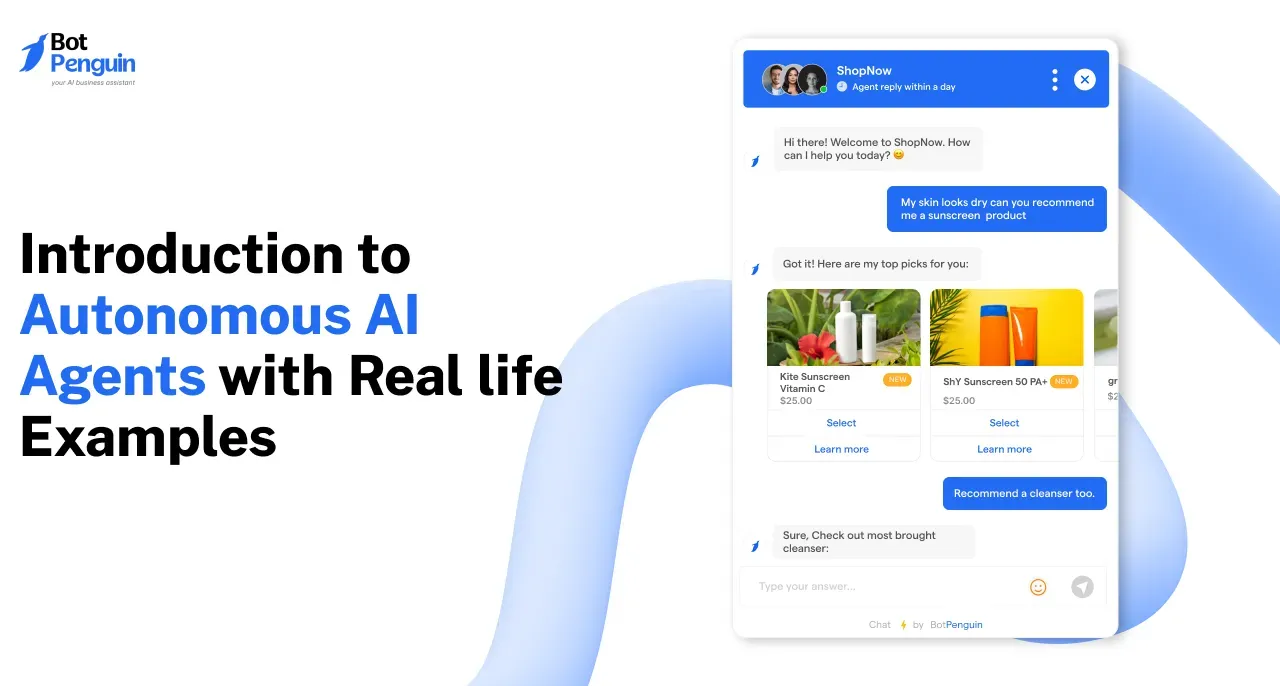Introduction
The terms AI agents, AI assistants, and AI chatbots are used quite often in businesses. It is important to know the functionalities of each to use them effectively. Yet, most people consider AI agents, assistants, and chatbots as one vague concept which is incorrect.
These are distinct technologies with different purposes and abilities, each influencing businesses in unique ways. Hence, it is essential to understand the difference between them.
This guide will unravel the confusion and clarify what sets them apart. Ready to delve into the world of AI agent vs AI assistant vs AI chatbot? Let us get started.
What is an AI Agent?
AI agents are powerful tools that operate autonomously, often with little to no human intervention. They are designed to perform tasks based on a set of predefined rules or to learn and adapt as they go.
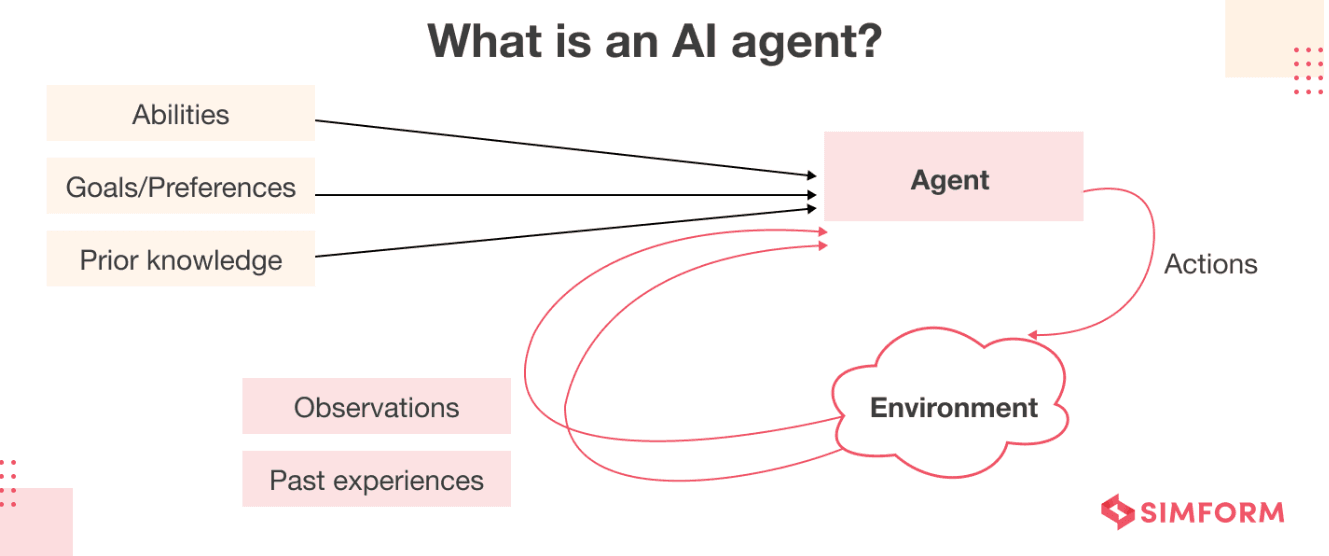
Unlike assistants or chatbots, AI agents are action-oriented, capable of decision-making, and can carry out complex processes. Let us break down what makes them unique in the landscape of AI Agent vs AI Assistant vs AI Chatbots.
Key Features of AI Agents
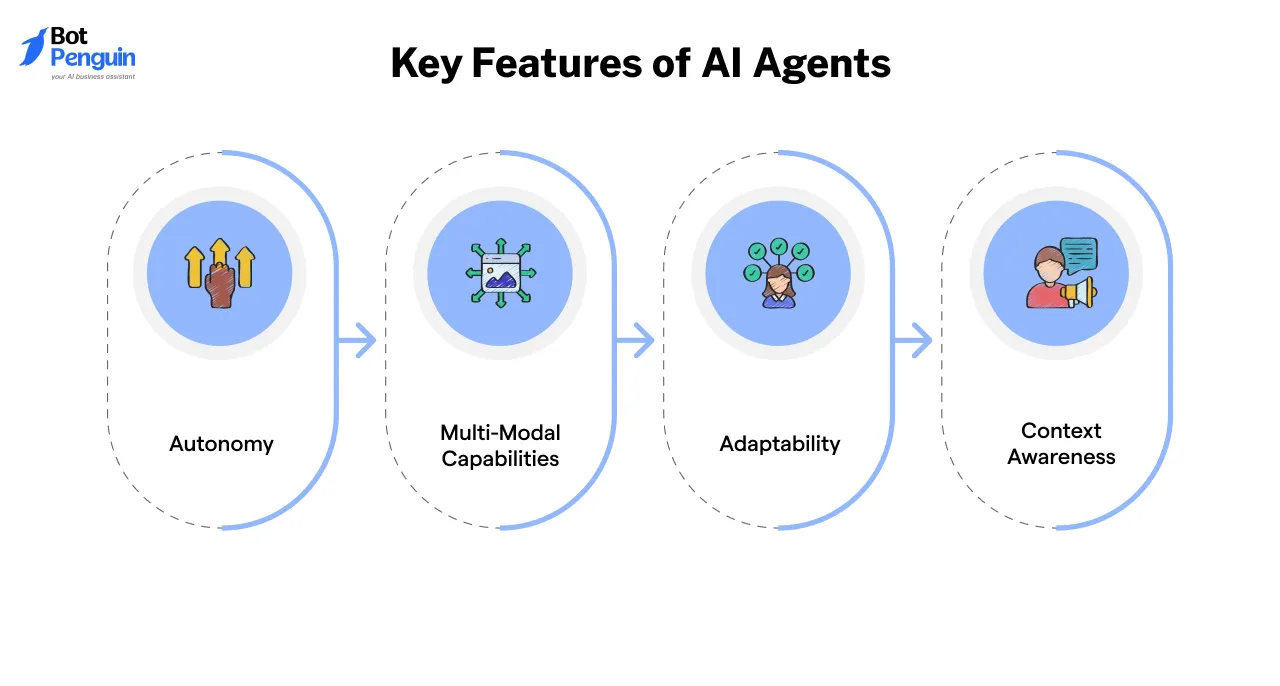
AI agents are intelligent systems designed to perceive their environment, process information, and take action to achieve specific goals. Let us explore some of their key features below:
- Autonomy: AI agents work independently without constant input. They can assess situations, make decisions, and act.
- Multi-Modal Capabilities: These agents can process and respond to different types of input, including text, images, numerical data, and multi-format document handling.
- Adaptability: They use machine learning to improve over time, refining their performance through data.
- Context Awareness: AI agents understand the environment in which they operate, making them highly effective in dynamic scenarios.
Hence, these agents combine autonomy, multi-modal capabilities, adaptability, and context awareness to offer highly efficient, dynamic solutions, making the AI Agent vs AI Assistant vs AI Chatbots distinction essential for understanding how these technologies provide value across various industries.
Examples of AI Agents
AI agents are already transforming various industries by automating tasks, enhancing decision-making, and improving efficiency. Here are a few examples of them in action:
- Autonomous vehicles: Self-driving cars like Tesla's Autopilot act as AI agents, interpreting practical conditions and making split-second decisions.
- Trading bots: These agents manage stock market transactions based on complex algorithms.
- Customer Engagement: AI agents analyze user behavior, predict needs, and automate interactions across multiple touchpoints in customer engagement.
These examples illustrate how AI agents are reshaping industries by automating complex processes, improving accuracy, and driving innovation across various sectors.
As technology advances, discussions around AI agent vs AI assistant vs AI chatbots continue to shape the future of intelligent systems.
What is an AI Assistant?
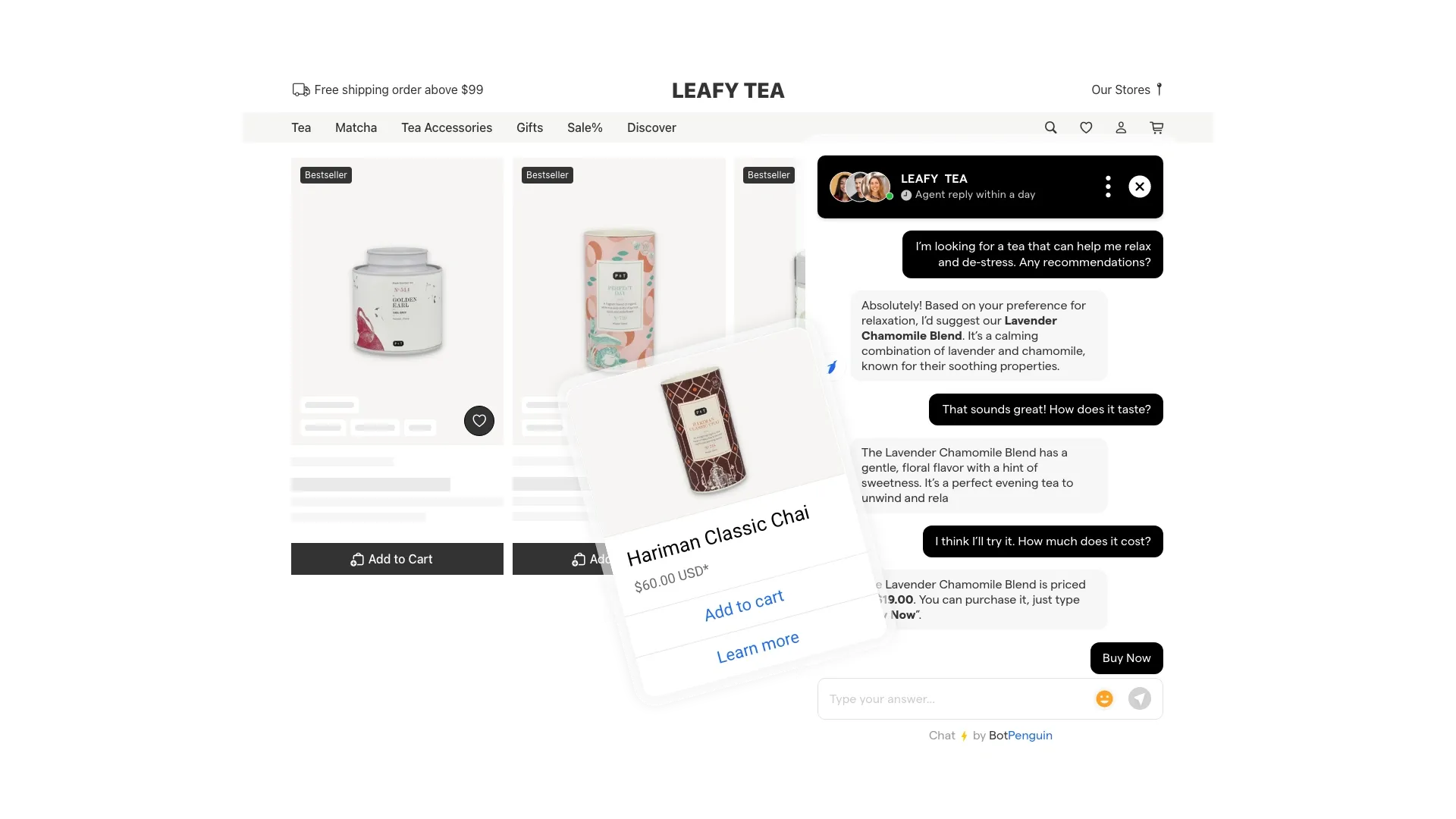
AI assistants are designed to make life easier by managing tasks, providing information, and interacting with users in natural, conversational ways.
They are user-centric and act as extensions of human capabilities. In the debate of AI Agent vs AI Assistant vs AI Chatbots, assistants are the most human-like in their interactions.
Key Features of AI Assistants
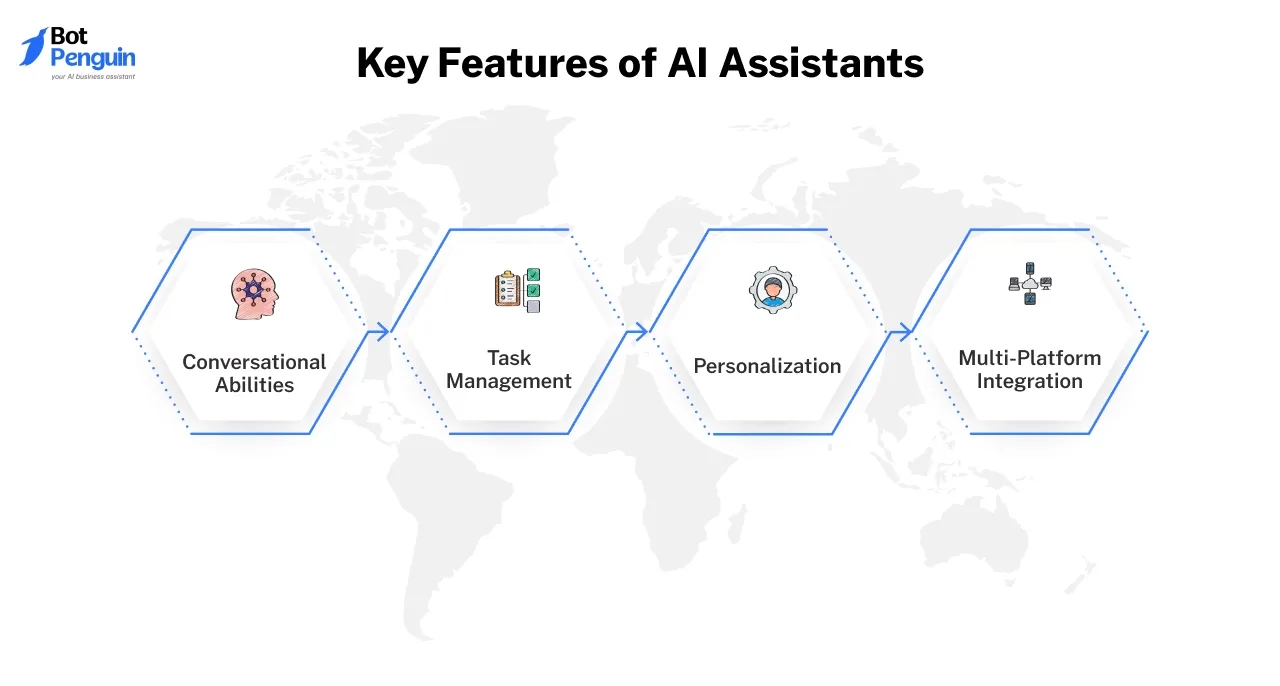
AI assistants can enhance user experience through intelligent interaction and task management.
When comparing AI Agent vs AI Assistant vs AI Chatbots, assistants stand out for their ability to support users with task management and productivity. Some of their key features include:
- Conversational Abilities: They process natural language to communicate effectively.
- Task Management: AI assistants help with scheduling, reminders, and organizing information.
- Personalization: Over time, they learn user preferences to provide tailored experiences.
- Multi-Platform Integration: They work across devices, from phones to smart home systems.
Overall, AI assistants offer a seamless, personalized experience by combining conversational abilities, efficient task management, and multi-platform integration, making them indispensable tools in everyday life and highlighting their role when compared to AI Agents vs AI Assistants vs AI Chatbots.
Examples of AI Assistants
AI assistants have changed how we interact with technology, making everyday tasks easier and more efficient. Here are some well-known examples of them in action:
- Business Intelligence Assistants: These assistants analyze data, generate reports, and provide insights to support decision-making and strategy planning.
- Virtual Productivity Assistants: They manage schedules, set reminders, send emails, and optimize workflows for users.
- Market Research Assistants: Analyzes trends, gathers consumer insights, and generates reports to support data-driven business decisions.
These AI assistants have become an essential part of daily life, streamlining tasks and enhancing user convenience.
What is an AI Chatbot?
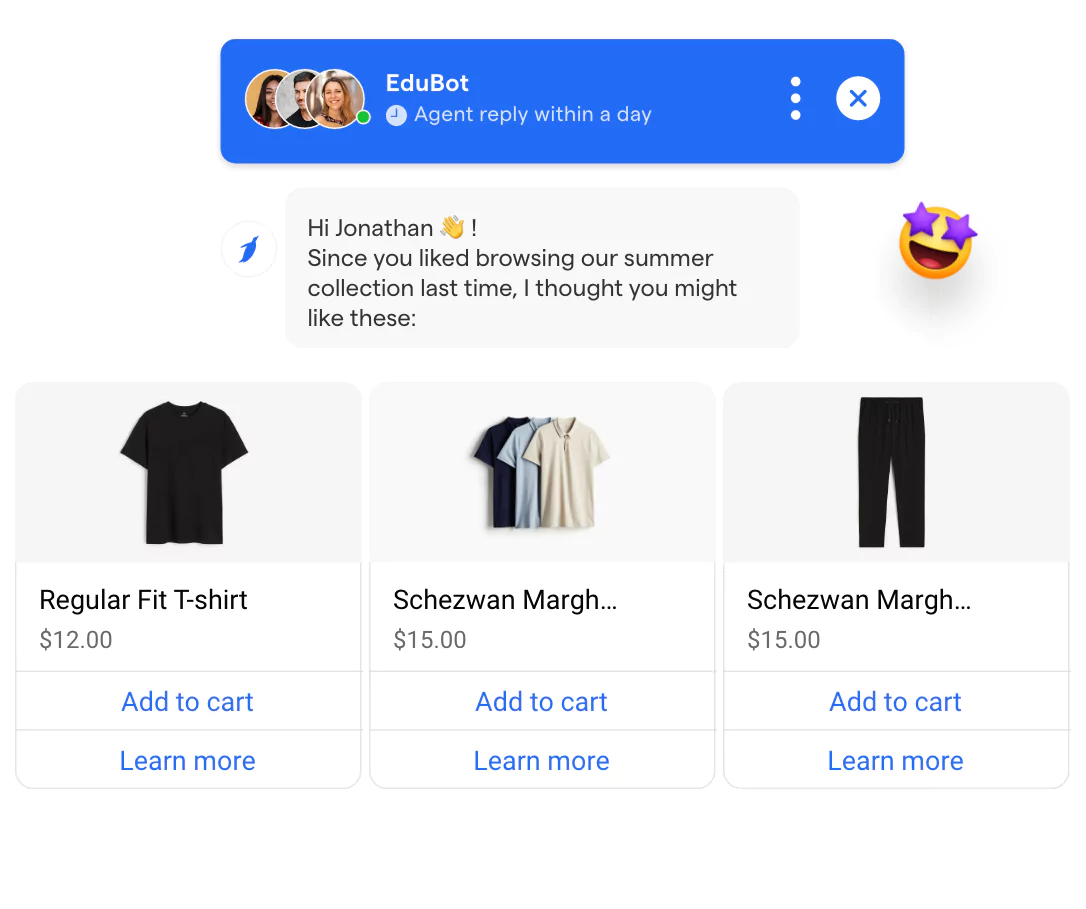
AI chatbots are streamlined for one thing: conversation. These systems excel in handling queries, providing quick responses, and guiding users through specific tasks.
While they may seem similar to assistants, their scope is narrower. In the context of AI Agent vs AI Assistant vs AI Chatbots, chatbots are the simplest form of AI interaction.
Key Features of AI Chatbots
AI chatbots are powerful tools that enable businesses to engage with customers efficiently and effectively.
In the AI Agent vs AI Assistant vs AI Chatbots comparison, chatbots stand out for their conversational capabilities, helping businesses streamline communication. Let us explore some of their key features below:
- Focused Expertise: Chatbots are designed to answer specific questions or complete defined tasks.
- Rule-Based or AI-Driven: Some follow scripted responses, while others use machine learning to understand user intent.
- Instant Response: They provide fast and efficient solutions for user queries.
- Scalability: Chatbots can handle thousands of interactions simultaneously, making them ideal for businesses.
Hence, AI chatbots have become indispensable for businesses, delivering immediate responses, handling large volumes of interactions, and continuously improving customer engagement.
Examples of AI Chatbots
AI chatbots are enhancing customer interactions and streamlining processes. Here are some key examples of how they are being used:
- Customer Service Bots: Many companies use chatbots to address FAQs and support requests.
- E-commerce Bots: They guide users through product catalogs or help with purchases.
- Healthcare Chatbots: Assist patients by providing basic medical advice or scheduling appointments.
Overall, chatbots are transforming how businesses interact with customers, providing quick, efficient, and scalable solutions.
As the technology continues to grow, the discussion around AI agent vs AI assistant vs AI chatbots highlights the unique strengths and applications of each, shaping the future of intelligent systems.
AI Agent vs AI Assistant vs AI Chatbots
Understanding the differences between AI agents, AI assistants, and AI chatbots is key to making the most of these technologies.
Each operates with unique goals, technologies, and levels of complexity. In the context of AI Agent vs AI Assistant vs AI Chatbots, let us break down the distinctions across functionality, technology, and autonomy.
The functionality of AI Agent vs AI Assistant vs AI Chatbots
The way these systems operate is their most fundamental difference in the AI Agent vs AI Assistant vs AI Chatbots context.
- AI Agents: AI agents work autonomously. They are designed to perform complex tasks, such as managing supply chains or detecting fraud, often with minimal human intervention. They don’t need constant supervision and excel in high-stakes scenarios.
- AI Assistants: These systems actively assist users. They help with task management, scheduling, and retrieving information. AI assistants focus on enhancing productivity and simplifying everyday tasks.
- AI Chatbots: Chatbots are focused on conversational tasks. They handle customer queries, provide predefined answers, or guide users through specific workflows. Unlike agents or assistants, chatbots are not action-oriented.
In conclusion, the differences between AI Agent vs AI Assistant vs AI Chatbots are clear with each bringing unique value to businesses and users.
Technology Used in AI Agent vs AI Assistant vs AI Chatbots
Different technologies power these tools, shaping their abilities and use cases.
- AI Agents: Advanced algorithms and decision-making frameworks make AI agents highly capable. They use machine learning models to analyze data, predict outcomes, and adapt over time. For example, they optimize processes in industries like logistics or energy.
- AI Assistants: Natural Language Processing (NLP), voice recognition, and task automation are at the core of AI assistants. These systems are built to understand commands, process context, and execute tasks based on user preferences.
- AI Chatbots: Chatbots rely primarily on NLP to interpret and respond to user inputs. While some use basic scripted responses, more advanced chatbots use AI to simulate conversational fluency. Their primary goal is to interact, not act.
Hence, the AI Agent vs AI Assistant vs AI Chatbots differ not only in their functionality but also in the technologies that power them, with each using unique advancements to serve specific purposes effectively.
Complexity and Autonomy of AI Agent vs AI Assistant vs AI Chatbots
The level of complexity and independence these systems demonstrate is a defining factor in the AI Agent vs AI Assistant vs AI Chatbots discussion.
- AI Agents: Agents have high autonomy. They work independently, requiring little to no input once deployed. For instance, an AI agent managing a stock portfolio can monitor the market and make transactions without external guidance.
- AI Assistants: Assistants balance autonomy with user guidance. They are moderately independent but often rely on commands or prompts from users. For example, a virtual assistant might organize your calendar but still need your input for specific details.
- AI Chatbots: Chatbots are the least autonomous. They operate within predefined boundaries and rely on user inputs to function. They excel at answering FAQs or directing users to the right resources but lack the ability to make decisions independently.
Understanding the nuances of AI agent vs AI assistant vs AI chatbots helps in selecting the right technology for specific needs. Each plays a crucial role in enhancing productivity and user experience, offering distinct capabilities and levels of independence.
Comparison Table of AI Agent vs AI Assistant vs AI Chatbots
The distinction between AI agent vs AI assistant vs AI chatbots lies in their functionality, technology, and level of autonomy.
Each type of system serves different purposes, from making complex decisions to assisting with daily tasks or engaging in conversations. Below is a quick comparison to highlight the key differences.
Feature | AI Agent | AI Assistant | AI Chatbot |
| Primary Function | Makes autonomous decisions and executes tasks. | Assists users with tasks and automation. | Engages in conversations and support. |
| Technology Used | Machine learning, deep learning, predictive analytics. | Natural Language Processing (NLP), voice recognition. | NLP, predefined workflows, rule-based responses. |
| Decision-Making Capability | High; processes data and acts independently. | Moderate; assists but doesn’t decide. | Minimal; follows set scripts. |
| Interaction Mode | Autonomous; makes independent choices. | Proactive; anticipates and assists. | Reactive; responds to user input. |
| Complexity | High; deep learning and real-time adaptation. | Moderate; pattern analysis and task execution. | Low; structured dialogues and basic tasks. |
| Learning Ability | Self-learning; updates in real time. | Adaptive; improves via interactions. | Limited; often requires manual updates. |
| Task Scope | Handles complex decisions and automation. | Manages multiple tasks and data processing. | Focuses on communication and assistance. |
| Error Handling | Identifies and self-corrects errors. | Detects and suggests solutions. | Manual or user-dependent error fixes. |
| Adaptability | Highly dynamic, evolves with data. | Flexible, adjusts to user preferences. | Predefined responses, limited flexibility. |
| Use Cases | Business decisions, fraud prevention, automation. | Scheduling, FAQs, personal assistance. | Customer support, lead generation. |
| Examples | Trading bots, self-driving cars, fraud detection systems. | Siri, Google Assistant, Alexa. | ChatGPT, website chatbots, WhatsApp bots. |
In choosing the right solution, understanding the distinctions between AI Agent vs AI Assistant vs AI Chatbots is crucial.
Each system serves a different purpose. Identifying specific business needs will help determine which of these AI-driven solutions is the best fit for achieving efficiency and engagement.
Use Cases for AI Agent vs AI Assistant vs AI Chatbots
The practical applications of AI agents, assistants, and chatbots showcase their unique strengths. Each plays a specific role, solving different problems and catering to diverse needs.
To better understand the landscape of AI Agent vs AI Assistant vs AI Chatbots, let us explore their use cases.
AI Agents
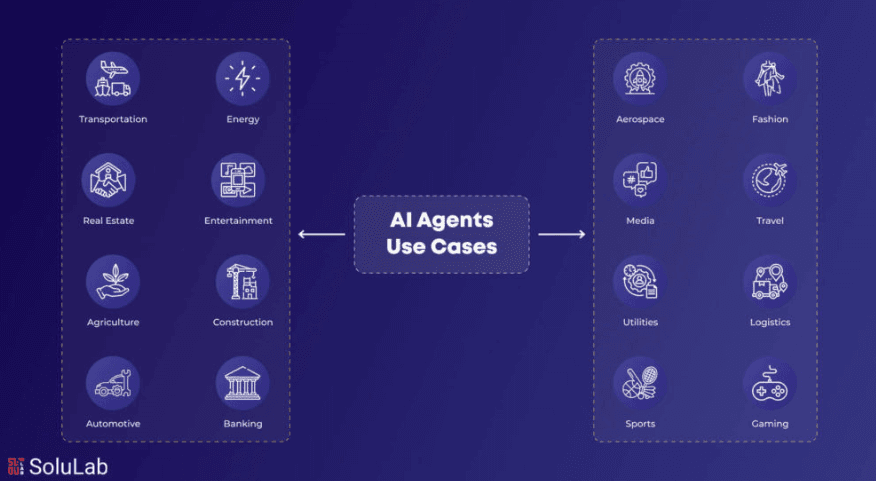
AI agents like BotPenguin thrive in complex, high-stakes environments where autonomy and decision-making are essential.
- Financial Trading: AI agents analyze market data, predict trends, and execute trades without human intervention. They optimize portfolios and react to market changes in real-time.
- Supply Chain Management: These agents streamline logistics by monitoring inventory, forecasting demand, and coordinating deliveries. They reduce costs and improve efficiency.
- Predictive Maintenance in Industries: AI agents analyze equipment data to predict failures before they happen. This helps companies prevent downtime and reduce repair costs.
In businesses, the AI Agent vs AI Assistant vs AI Chatbots distinction is crucial for understanding how these technologies are applied across different industries.
AI Assistant
AI assistants focus on improving productivity and simplifying daily tasks for individuals and businesses.
- Scheduling Meetings: They integrate with calendars to organize meetings, find time slots, and send invites, saving time for busy professionals.
- Managing Emails and Reminders: AI assistants sort emails, flag important ones, and remind users of deadlines or tasks. This ensures nothing gets overlooked.
- Industry-Specific Task Automation: In sectors like healthcare or finance, AI assistants automate routine tasks like processing claims, managing appointments, or handling transaction data, improving operational efficiency.
These use cases highlight how AI assistants are helping businesses and individuals effectively. Understanding the AI Agent vs AI Assistant vs AI chatbot landscape helps businesses use these tools effectively, improving productivity and streamlining operations across various sectors.
AI Chatbots
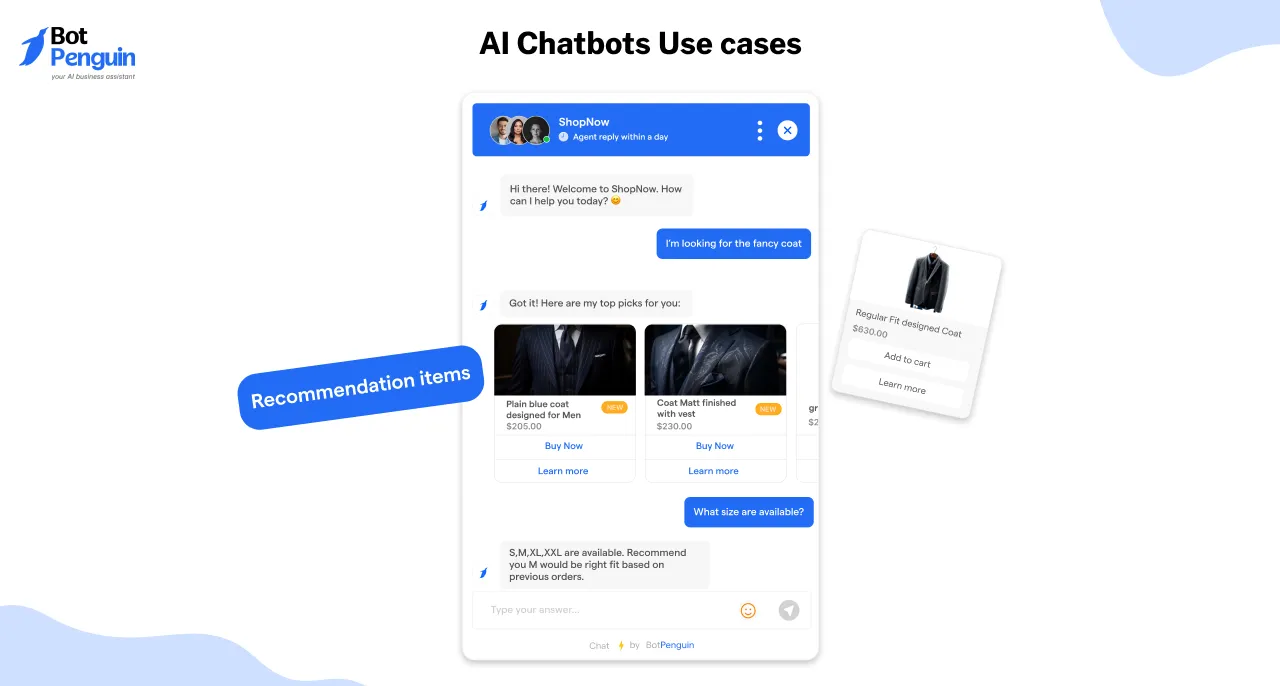
AI chatbots excel in customer-facing roles, offering fast and efficient solutions.
- Customer Service: Chatbots handle FAQs, troubleshoot basic issues, and escalate complex queries to human agents when necessary. This improves response times and customer satisfaction.
- E-commerce Product Recommendations: By analyzing user preferences, chatbots suggest products, guide purchases, and enhance the shopping experience.
- FAQs for Websites or Apps: Chatbots provide quick answers to common queries, ensuring users can easily navigate services or access information.
The diverse use cases of AI agent vs AI assistant vs AI chatbots demonstrate how each technology plays a unique and important role across industries. Whether it is managing complex decisions, simplifying day-to-day tasks, or enhancing customer engagement, these AI systems are transforming workflows and improving efficiency.
Pros and Cons of AI Agent vs AI Assistant vs AI Chatbots
Each AI system, be it agents, assistants, and chatbots has its strengths and weaknesses. Choosing the right one depends on your goals and the complexity of your tasks.
To better understand the landscape of AI Agent vs AI Assistant vs AI Chatbots, let us evaluate their pros and cons.
AI Agents
AI agents are powerful, but they come with challenges.
Pros:
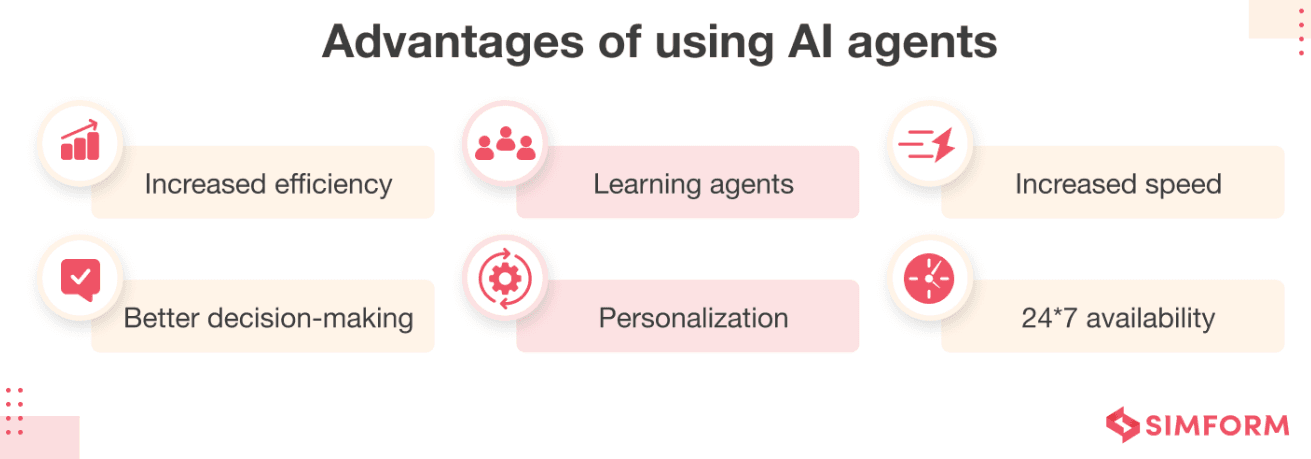
- Handles Complex Tasks: AI agents excel in scenarios that involve intricate processes, such as managing logistics or conducting financial analysis.
- Works Independently: Once set up, they require minimal user input, making them ideal for high-stakes or time-sensitive tasks.
Cons:
- Requires Significant Setup: Implementing AI agents involves complex programming, training, and integration, which can be time-consuming and costly.
- Needs Monitoring: Although autonomous, they may still need oversight to ensure they remain aligned with organizational goals.
Suggested Reading:
Top 13 Free Autonomous AI Agents for Businesses
AI Assistants
AI assistants are user-friendly but have limitations.
Pros:
- Easy to Use: These systems are intuitive and don’t require technical expertise, making them accessible to a wide range of users.
- Boosts Personal Productivity: By handling repetitive tasks like scheduling or reminders, AI assistants save users time and effort.
Cons:
- Limited by Predefined Tasks: Their scope is confined to specific tasks, which means they can’t adapt to unexpected needs or complex scenarios.
- Reliance on User Input: AI assistants often need guidance to perform tasks effectively, reducing their autonomy.
AI Chatbots
AI chatbots are affordable but lack advanced automation .
Pros:
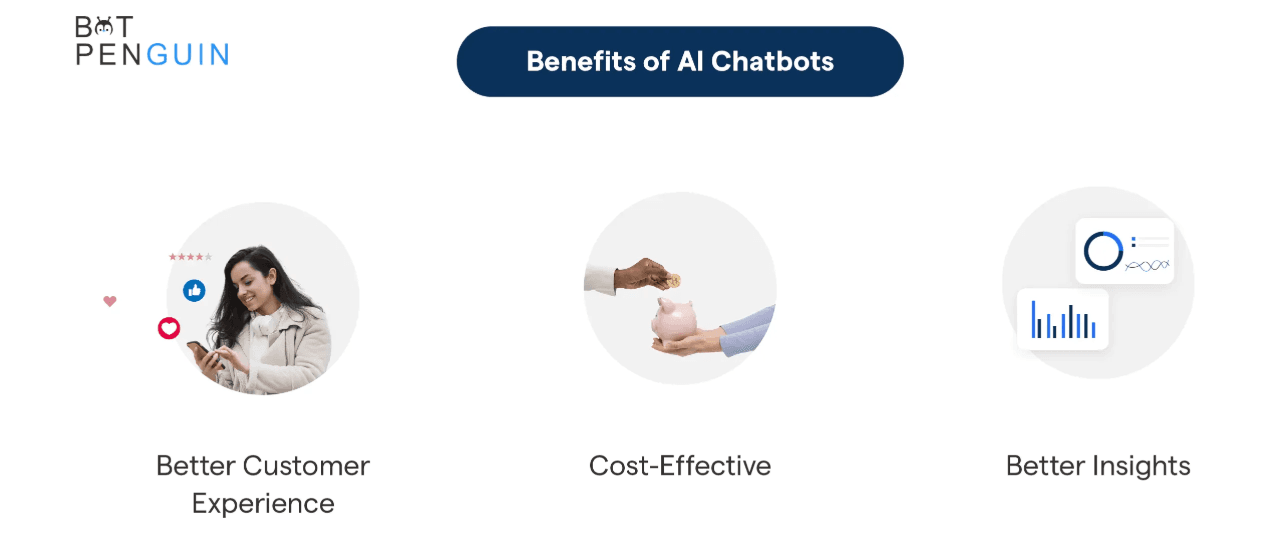
- Affordable: Chatbots are cost-effective and a practical solution for businesses looking to automate customer interactions.
- Easy to Integrate: They can be quickly implemented into websites or apps, providing immediate functionality.
Cons:
- Struggles with Nuanced Conversations: Chatbots may fail to understand or respond accurately to complex or ambiguous queries.
- Limited Depth: They often operate within a narrow scope, which can frustrate users looking for comprehensive answers.
In evaluating the AI agent vs AI assistant vs AI chatbots debate, it is clear that each system offers unique advantages depending on the tasks at hand. Choosing the right AI solution depends on your specific needs and goals.
Choosing the Right One in the AI Agent vs AI Assistant vs AI Chatbots Landscape
Selecting the right AI tool can feel overwhelming, but it doesn’t have to be. Whether you are considering AI agents, AI assistants, or AI chatbots, the key lies in understanding your needs and matching them with the right technology.
Here’s a guide to help you make the best choice in the debate of AI Agent vs AI Assistant vs AI Chatbots.
Questions to Ask Yourself While Choosing AI Agent vs AI Assistant vs AI Chatbots
Before deciding, ask these critical questions:
- What Problem Are You Solving?
- Are you looking for a system to handle complex decision-making?
- Do you need a tool to boost productivity or automate repetitive tasks? Or, is your focus on improving customer interactions?
- How Much Autonomy Do You Need?
- Do you prefer a system that works independently with minimal input? Or, do you need a solution that requires user guidance and interaction?
- What Is Your Budget and Technical Capacity?
- Can you invest in advanced systems requiring complex implementation? Or, do you need an affordable, easy-to-implement solution?
Answering these questions will clarify your priorities and narrow down your options.
Recommendations Based on Needs
Depending on your specific requirements, here is how to choose between AI agents, AI assistants, and AI chatbots:
For Automation and Decision-Making: AI Agent
- Why Choose AI Agents?
- They operate autonomously, making them ideal for tasks requiring minimal oversight.
- They excel in learning and adapting through machine learning, providing long-term efficiency.
- While they require significant setup, the benefits in productivity and decision-making justify the investment.
- Example Use Cases: Predictive maintenance, financial trading, or managing logistics in supply chains.
- Best For: Businesses dealing with high-stakes or complex processes.
For Personal Productivity: AI Assistant
- Why Choose AI Assistants?
- They are user-friendly and integrate seamlessly into daily workflows.
- They can learn user preferences to provide personalized experiences.
- While limited to predefined tasks, their ease of use makes them a go-to tool for boosting productivity.
- Example Use Cases: Scheduling meetings, managing reminders, or voice-controlling smart devices.
- Best For: Individuals or teams seeking to manage time and tasks efficiently.
For Customer Interactions: AI Chatbot
- Why Choose AI Chatbots?
- They are affordable and can be quickly integrated into websites or apps.
- They handle high volumes of interactions, ensuring customers get immediate responses.
- Although they struggle with nuanced conversations, they’re highly effective for straightforward queries.
- Example Use Cases: Answering FAQs, providing e-commerce recommendations, or managing support tickets.
- Best For: Businesses focusing on customer engagement and support.
Choosing the right solution between AI agent vs AI assistant vs AI chatbots depends on your specific needs—whether you need automation, productivity support, or efficient customer interactions.
Understanding the strengths and limitations of each can help you make the best decision to enhance efficiency, engagement, and overall performance.
Practical Examples of AI Agent vs AI Assistant vs AI Chatbots
The use of AI in various scenarios illustrates the unique strengths of AI agents, assistants, and chatbots.
These technologies are transforming industries, streamlining tasks, and enhancing user experiences. Let us dive into practical applications of AI Agent vs AI Assistant vs AI Chatbots.
Autonomous Delivery Drones
Amazon Prime Air’s delivery drones are a shining example of AI agents. These drones autonomously navigate urban environments, using sensors and AI algorithms to avoid obstacles, optimize routes, and deliver packages.
They change the way logistics operate, reducing delivery times and costs while minimizing environmental impact.
Calendar Scheduling by Google Assistant
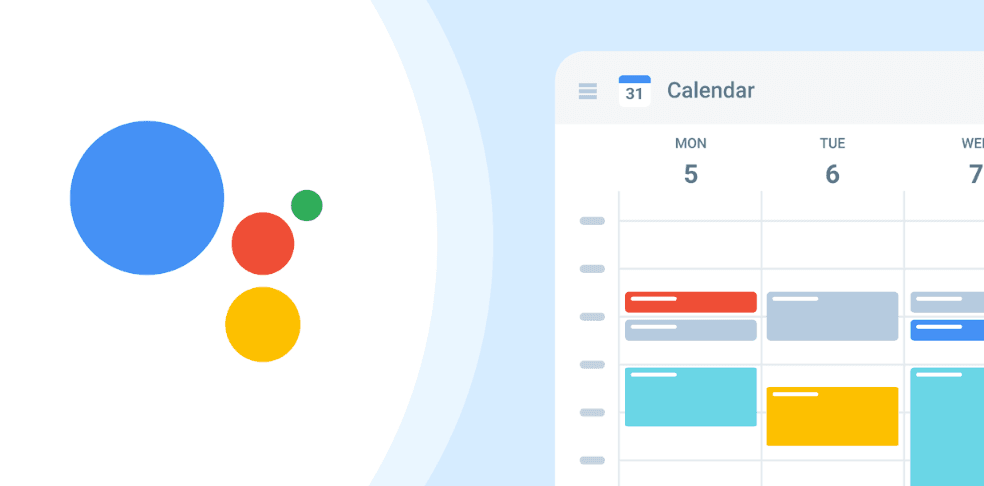
Google Assistant’s calendar scheduling showcases how AI assistants simplify daily tasks. It can interpret natural language commands to schedule meetings, check availability, and send reminders.
Integrated across devices, it learns user preferences over time, ensuring seamless assistance. For example, a busy professional can say, “Schedule a meeting with John next Wednesday,” and the assistant handles the rest.
E-Commerce Help Desk Support
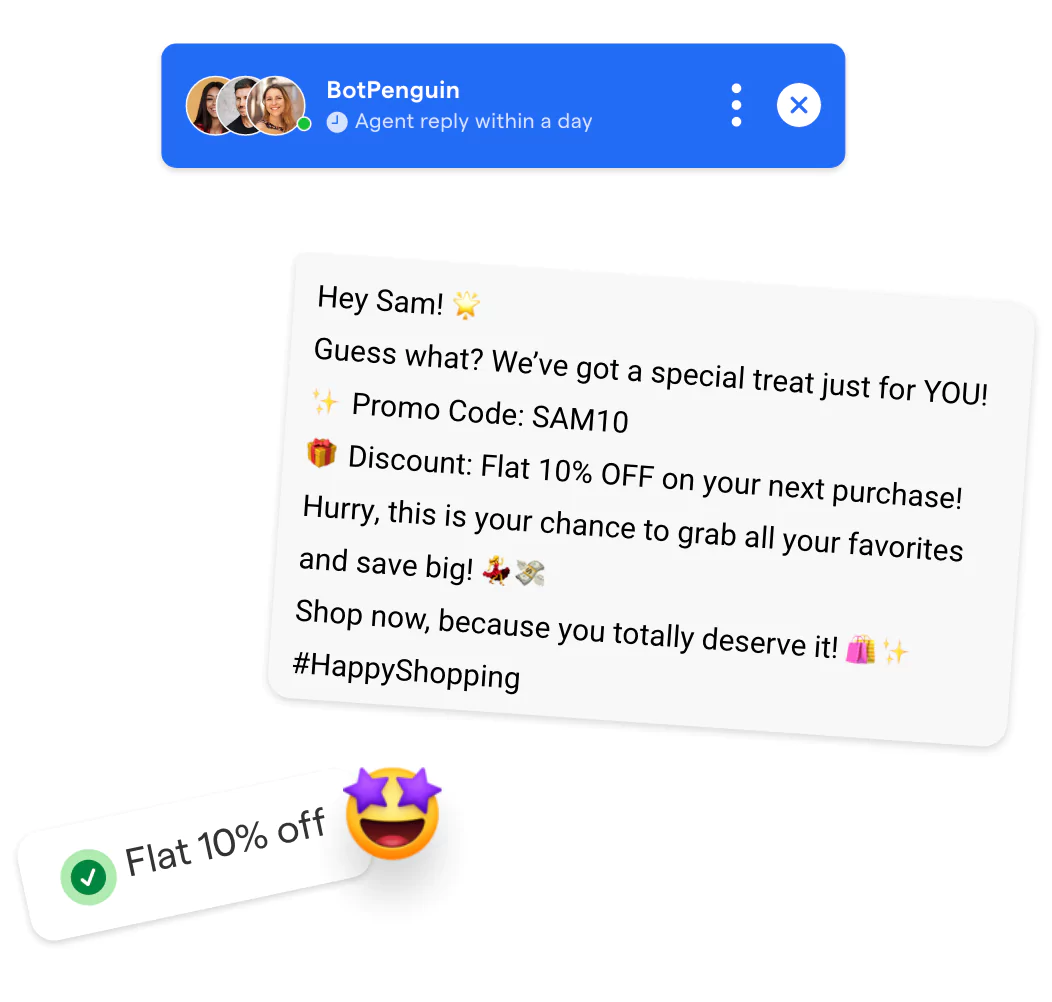
BotPenguin’s customer service chatbot is a great example of an AI chatbot in action. Integrated into e-commerce websites and mobile apps, BotPenguin assists users by answering questions, guiding product selection, and helping with the checkout process.
It ensures quick responses, even during high-traffic periods, improving the customer experience and enhancing business operations by automating support functions.
These practical examples demonstrate the diverse applications of AI agent vs AI assistant vs AI chatbots across various industries.
Whether it is automating complex logistics, simplifying personal tasks, or enhancing customer support, each technology plays a unique role in improving efficiency and user experience.
Trends and Future Outlook of AI Agent vs AI Assistant vs AI Chatbots
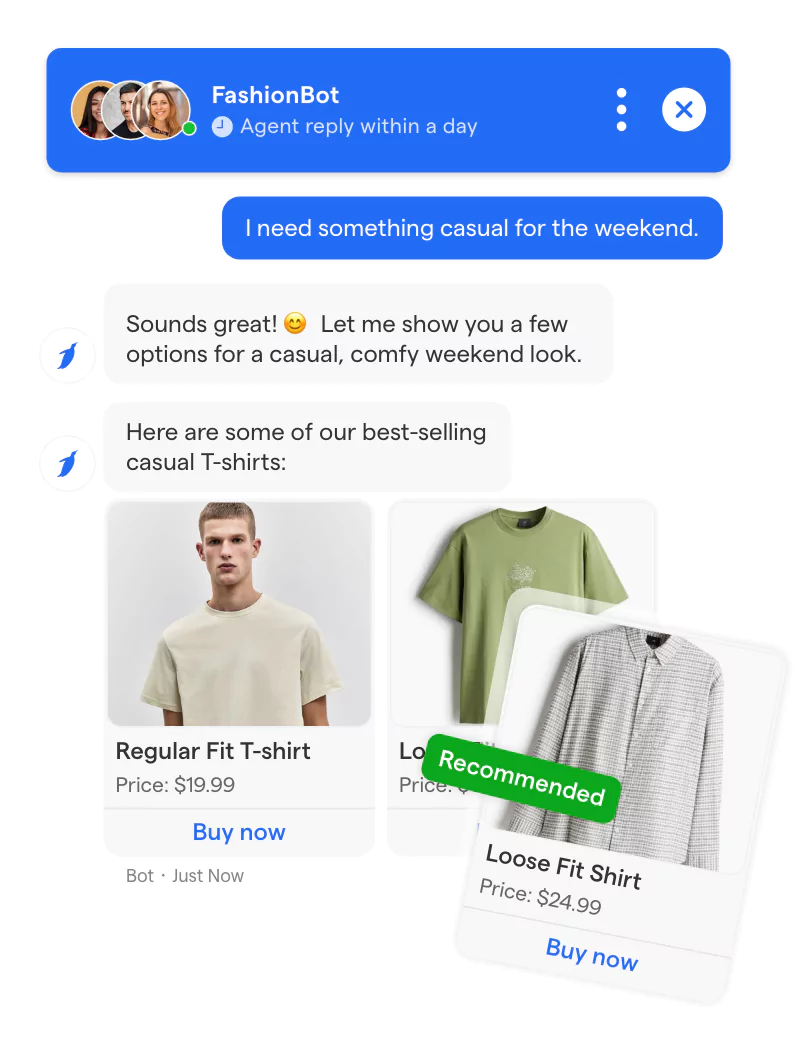
The future of AI is dynamic and full of potential. From combining technologies to expanding into new industries, the evolution of AI agents, AI assistants, and AI chatbots is reshaping how we interact with technology.
Here’s what the future holds for AI Agent vs AI Assistant vs AI Chatbots.
Growth in Hybrid Models Combining These Tools
The lines between AI agent vs AI assistant vs AI chatbots are beginning to blur. Hybrid models are emerging, using the strengths of each system.
For example, a chatbot integrated with the decision-making capabilities of an agent can handle customer queries and execute actions autonomously. These combinations improve efficiency and offer a seamless user experience.
Increasing Personalization in Assistants and Chatbots
AI assistants and chatbots are becoming more tailored to individual users. Advances in natural language processing and machine learning allow these systems to adapt to personal preferences and offer context-aware responses.
For instance, future chatbots could recommend products based on a user’s mood, not just purchase history, enhancing user engagement.
Expansion of Agents into More Industries
AI agents are extending their reach beyond traditional sectors like logistics and finance. Industries such as healthcare and energy are starting to benefit from their autonomy and decision-making capabilities.
For example, in healthcare, agents can analyze patient data to suggest treatment plans, while in energy, they optimize power distribution in smart grids.
As we look to the future, the evolution of AI agent vs AI assistant vs AI chatbots will continue to drive innovation across multiple industries.
With the rise of hybrid models, increased personalization, and the expansion of AI agents into new sectors, these technologies are poised to transform how we interact with and use AI for both business and personal use.
Conclusion
In the debate of AI Agent vs AI Assistant vs AI Chatbots, it is clear that each has a unique role to play. Whether you need autonomous decision-making, personal productivity tools, or efficient customer interaction, the right AI solution depends on your needs.
For businesses aiming to enhance customer engagement and operational efficiency, BotPenguin has evolved beyond a chatbot platform into a powerful AI agent.
Initially known for its intuitive, no-code chatbot builder, BotPenguin now delivers advanced AI-driven automation, enabling businesses to go beyond simple conversations and integrate intelligent decision-making into their workflows.
Whether you need an AI-powered chatbot to handle customer queries seamlessly or a fully autonomous AI agent to optimize processes, BotPenguin caters to both.
With BotPenguin, you are not just automating conversations; you are using AI to drive real business growth.
Frequently Asked Questions (FAQs)
Can AI agents vs AI assistants vs AI chatbots be used together?
Yes, AI agents, AI assistants, and AI chatbots can be integrated into a single system to offer enhanced functionality.
For example, a hybrid model could combine the decision-making capabilities of AI agents with the conversational abilities of AI chatbots, providing a more comprehensive solution.
Which is best for handling customer service: AI agent vs AI assistant vs AI chatbots?
AI chatbots are best suited for handling customer service tasks, especially when it comes to answering frequently asked questions and providing instant support.
They can handle high volumes of interactions simultaneously, making them ideal for customer engagement. However, AI assistants can also assist with customer interactions by offering personalized support, while AI agents are typically more focused on automation and decision-making tasks.
Which is more suited for businesses: AI agent vs AI assistant vs AI chatbots?
It depends on the business needs. If automation and complex decision-making are required, AI agents are ideal.
For improving team productivity and organizing tasks, AI assistants are more suitable. For customer service and handling large-scale interactions, AI chatbots are the best choice.
Can AI assistants work across multiple devices?
Yes, AI assistants like Google Assistant and Alexa integrate across devices. They enable seamless task management, from scheduling meetings to controlling smart home systems, ensuring productivity and convenience in daily workflows.
Is BotPenguin suitable for small businesses?
Yes, BotPenguin is ideal for small businesses. Its no-code platform enables the creation of custom AI chatbots and Ai Agent quickly and affordably, streamlining customer service, and improving engagement without requiring technical expertise or extensive budgets.
 (1).webp)
